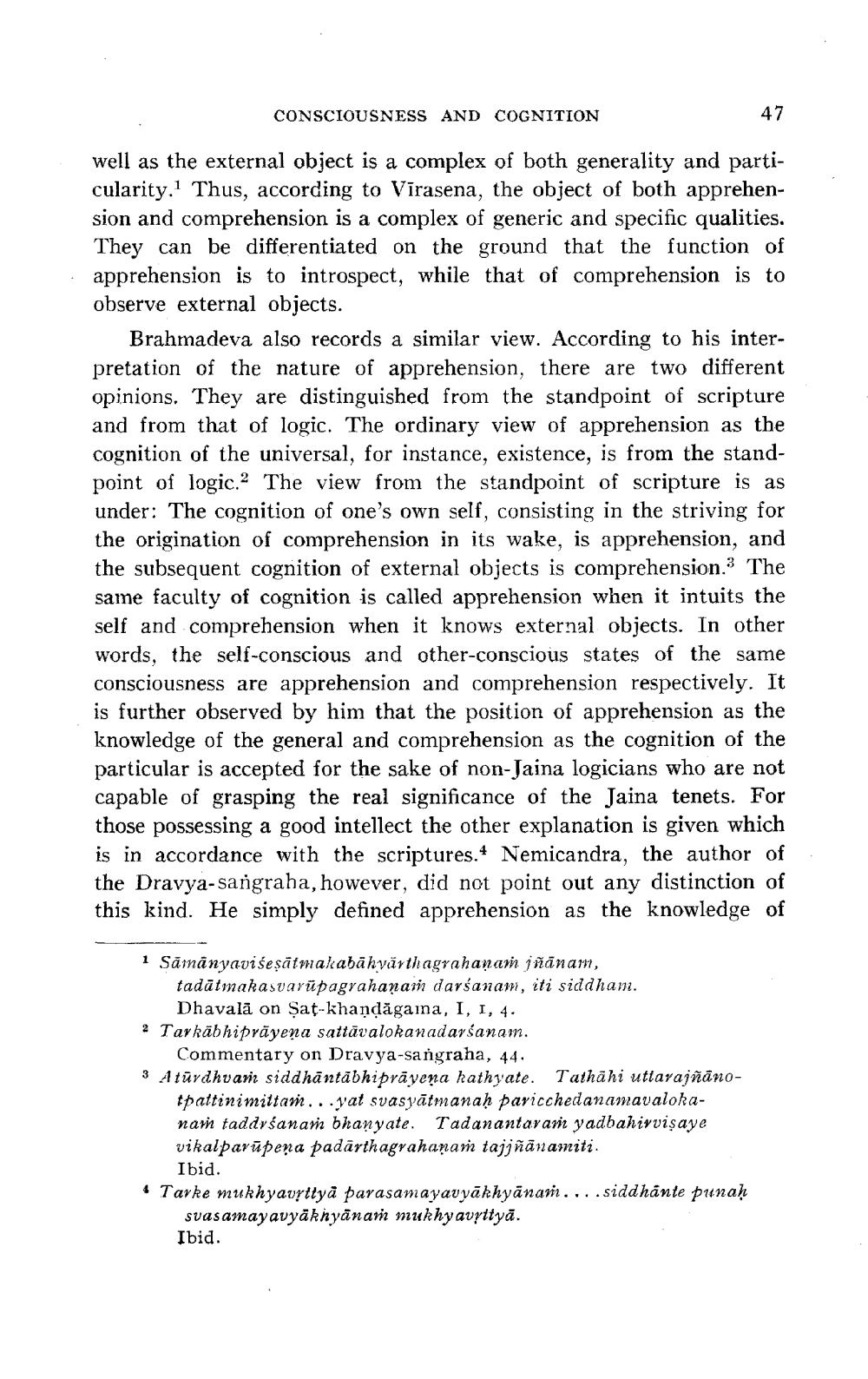________________
CONSCIOUSNESS AND COGNITION
47
well as the external object is a complex of both generality and particularity.1 Thus, according to Vīrasena, the object of both apprehension and comprehension is a complex of generic and specific qualities. They can be differentiated on the ground that the function of apprehension is to introspect, while that of comprehension is to observe external objects.
Brahmadeva also records a similar view. According to his interpretation of the nature of apprehension, there are two different opinions. They are distinguished from the standpoint of scripture and from that of logic. The ordinary view of apprehension as the cognition of the universal, for instance, existence, is from the standpoint of logic.2 The view from the standpoint of scripture is as under: The cognition of one's own self, consisting in the striving for the origination of comprehension in its wake, is apprehension, and the subsequent cognition of external objects is comprehension. The same faculty of cognition is called apprehension when it intuits the self and comprehension when it knows external objects. In other words, the self-conscious and other-conscious states of the same consciousness are apprehension and comprehension respectively. It is further observed by him that the position of apprehension as the knowledge of the general and comprehension as the cognition of the particular is accepted for the sake of non-Jaina logicians who are not capable of grasping the real significance of the Jaina tenets. For those possessing a good intellect the other explanation is given which is in accordance with the scriptures.4 Nemicandra, the author of the Dravya-sangraha, however, did not point out any distinction of this kind. He simply defined apprehension as the knowledge of
1 Sārnanyavićeşatmalabāhvürthagrahanam jñānam,
tadātmakasvarūpagrahanai darśanam, iti siddham.
Dhavalā on Sat-khandăgama, I, I, 4. 2 Tav käbhiprāyena sattāvalokanadarśanam.
Commentary on Dravya-sangraha, 44. 3 Atürdhvanir siddhāntābhiprāyena hathyate. Tathāhi uttarajñāno
tpattinimittam...vat svasyātmanaḥ paricchedanamavalokanam taddrśanam bhanyate. Tadanantaran yadbahirvisaye vikalparūpena padārthagrahanam tajjñānamiti.
Ibid. * Tarke mukhyavrttyä parasamayavyākhyānam... .siddhante punaḥ
svasamayavyākhyānam mukhyavrttyā. Ibid.




